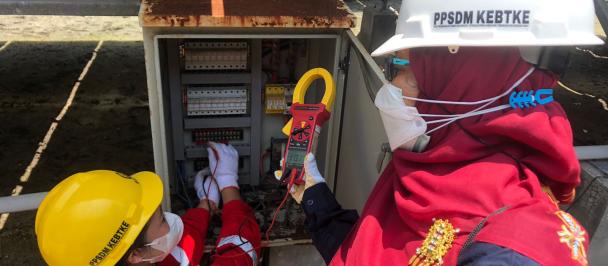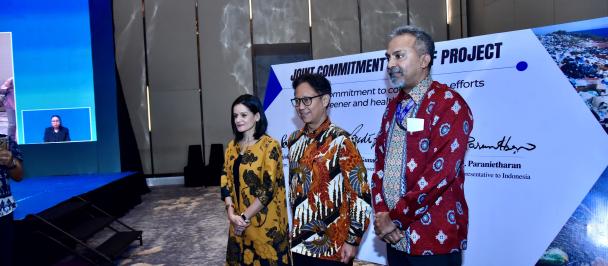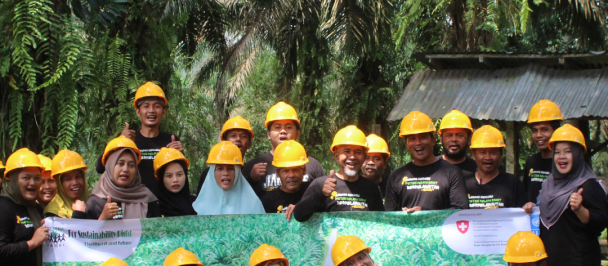Navigating Indonesia's Healthcare Transition: UNDP's Health Governance Initiative to Launch in 2019
In 2017, through the Project Initiation Plan (PIP) on Technical Assistance to SDGS Implementation in Indonesia (TA-SI), UNDP has worked closely with the Ministry of Health (MoH) to take necessary measures in cross cutting issue regarding to the SDG 3.3 Implementation, UNDP continuing to support government to increase capacity and stimulate other actors to find innovative and sustainable solutions to health system challenges and provide management support and technical assistance for the implementation of AIDS, Tuberculosis, Malaria, and Immunization program in Indonesia.
From the last decades, Indonesia has achieved significant population health outcomes Improvement, supported by a great economics development to the point of entering the LMIC status. Indonesia's latest and future positive economic outlook affects the availability of the international development assistance resources as these become more restricted to be allocated to other countries with lower economics status. The International development organizations who have been indispensable in the development of a number of health innovations in strengthening the health care system were gradually phasing out.
The Indonesian government has received funding support from donor agencies to address disease issues such as AIDS, Tuberculosis, Malaria and disease prevention for children through immunization programs for more than 15 years and now the government should prepare for transition phase for domestic funding to meet the Sustainable Development Goals health targets by 2030, progress must be accelerated, in particular in regions with the highest burden of disease. Indonesia plan to eliminate high burden infectious (TB, HIV, Malaria and Neglected Diseases) and Non-Communicable Diseases (NCDs) such as diabetes, heart diseases and cancers. Therefore, to reach it, Indonesia now enters universal health coverage through National Health Insurance Scheme (JKN). Substantial to this was driven by better health care provision and delivery by Puskesmas (community public clinics) and hospitals towards a comprehensive health care system. However, health inequality are widening among different economics status, geographic areas, education levels and within minority groups which pertinent by access to a quality and affordable health care resulted to a significant difference in health status.
Responding to those challenges, UNDP Indonesia will implement a project called 'Health Governance Initiative as new separated PIP of PIP TA/SII to address health inequality through an integrated Innovative solutions'. Health governance initiative includes a wide range of steering and rule-making related functions carried out by governments/decisions makers as they seek to achieve national health policy objectives and action plan that are conducive to universal health coverage.
The Health Governance Initiative Strategy alms to increase government capacity to address inequality in the health sector and stimulate other actors (e.g. private sector, other orders of government, civil society) to find innovative solutions to health system challenges, including preventive health interventions and multi-sectoral approaches.
Through the new PIP, UNDP will provide further Health Governance Initiative that will focus on three areas:
- Equitable access to health care of vulnerable groups by alleviating the bottlenecks in delivering health care products by addressing procurement and supply chain problems.
- Expensive pharmaceutical prices present challenges to the long-run solvency of JKN and leave low-income Indonesians vulnerable to catastrophic health care costs for pharmaceuticals not covered under JKN
- The development of an enabling policy and institutional strengthening government and non- government on management and technical matter to ensuring sustainable access to and delivery of affordable medicines and treatments.
In addition, UNDP will work together with GOI to develop a project document 2019-2021 on the Health Governance Initiative implementation in Indonesia, which will include a set of activities for the longer period. Through this PIP, UNDP will support consultations among state and non-state actors to gather information and input for the new project document.

 Locations
Locations



